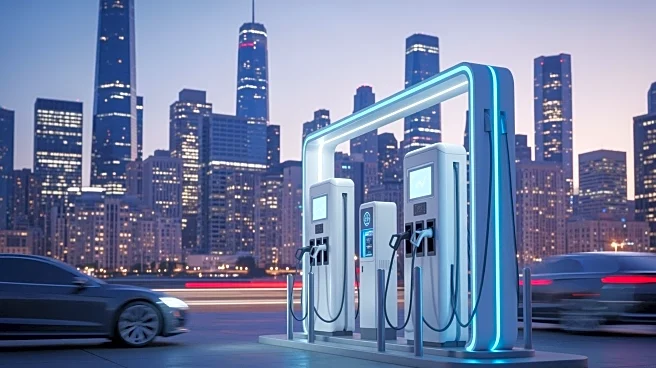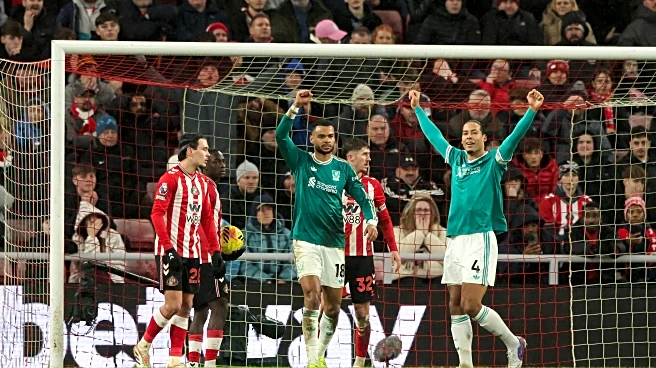What's Happening?
The expiration of the federal electric vehicle (EV) tax credit on September 30, 2025, has prompted reactions from Bay Area residents and industry stakeholders. The tax credit, which provided up to $7,500 for new EVs and $4,000 for used EVs, was part of the One
Big Beautiful Bill Act signed by President Donald Trump. The rollback is expected to impact EV sales and clean energy projects, as it follows a series of policies reducing environmental protections and subsidizing fossil fuels. Despite the expiration, EVs remain popular for their environmental benefits and cost savings on fuel and maintenance.
Why It's Important?
The end of the federal EV tax credit represents a significant shift in U.S. energy policy, with potential implications for the EV market and clean energy initiatives. The rollback may slow the adoption of EVs, particularly among cost-sensitive consumers, and could affect the pace of transition to sustainable transportation. However, the continued interest in EVs and the availability of state and company-specific incentives suggest that the market may adapt to these changes. The situation highlights the importance of policy support in driving the adoption of clean technologies and the need for innovative solutions to maintain momentum in the transition to a low-carbon economy.
Beyond the Headlines
The rollback of the EV tax credit raises questions about the future of U.S. energy policy and the role of government incentives in promoting sustainable technologies. As the market adjusts, stakeholders will need to explore alternative strategies to support the growth of the EV industry and address the challenges posed by climate change. The situation also underscores the importance of consumer education and awareness in driving demand for sustainable products. As the industry evolves, collaboration between policymakers, businesses, and consumers will be essential to achieving long-term environmental goals.

















